Damon Runyon Cancer Research Foundation Awards $4M to Innovative Early Career Scientists
The Damon Runyon Cancer Research Foundation announced that 12 scientists with novel approaches to fighting cancer have been named 2020 recipients of the Damon Runyon-Rachleff Innovation Award. Six initial grants of $400,000 over two years were awarded to seven early career scientists (five individuals and one collaborative team) whose projects have the potential to significantly impact the prevention, diagnosis and treatment of cancer. Each project will have the opportunity for up to two additional years of funding (four years total for $800,000). This year, “Stage 2” continuation support was granted to five awardees who demonstrated significant progress on their proposed research during the first two years of the award.
The Damon Runyon-Rachleff Innovation Award funds cancer research by exceptionally creative thinkers with “high-risk/high-reward” ideas who lack sufficient preliminary data to obtain traditional funding. The awardees are selected through a highly competitive and rigorous process by a scientific committee comprised of leading cancer researchers who are innovators themselves. Only those scientists with a clear vision and passion for curing cancer are selected to receive the prestigious award.
Examples of past success stories from Damon Runyon-Rachleff Innovators include the gene editing technology CRISPR and single cell sequencing techniques that are revolutionizing not just cancer research, but biomedical sciences globally.
This program was established thanks to the generosity of Andy and Debbie Rachleff.
New 2020 Damon Runyon-Rachleff Innovators:
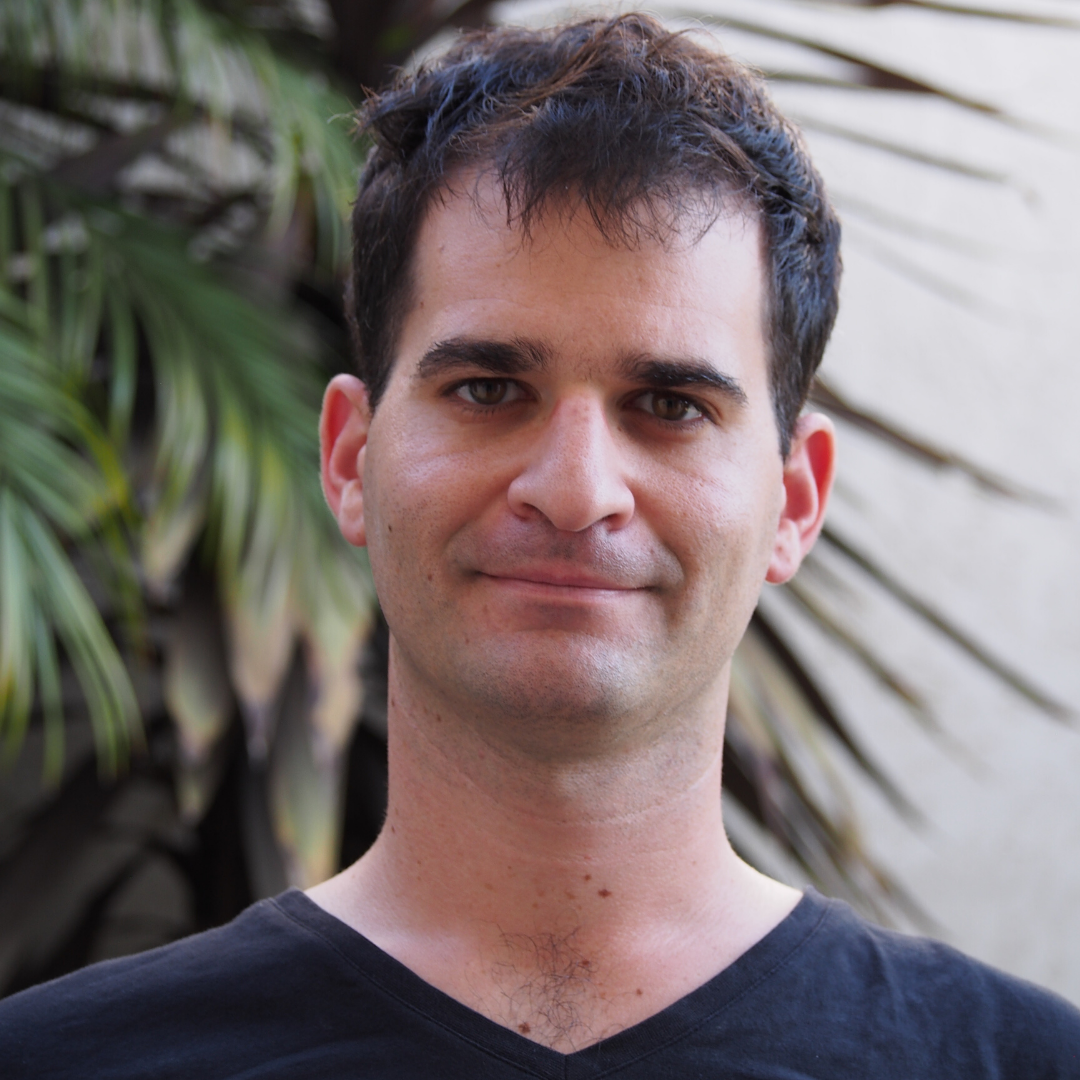 Liron Bar-Peled, PhD
Liron Bar-Peled, PhD
Massachusetts General Hospital
High levels of oxidative stress are a hallmark of many cancers; while it has long been appreciated to be a major impediment to cancer proliferation, the molecular mechanisms underlying its role in this process remain poorly understood. Using cutting-edge proteomic techniques, Dr. Bar-Peled is investigating how cancer cells respond to oxidative stress and exploring the different signaling pathways required by cancer cells to reduce the oxidative stress burden. His research may provide therapeutic avenues for targeting certain lung cancers.
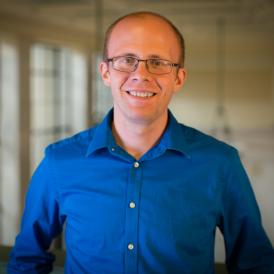 Michael E. Birnbaum, PhD
Michael E. Birnbaum, PhD
Massachusetts Institute of Technology
Immunotherapies that rely on reinvigorating T cells to patrol the body, detect cancerous cells and eliminate them have shown the potential for long-lasting cures. Despite their initial success, immunotherapies have been effective only for some cancers and for some patients. To improve outcomes, Dr. Birnbaum has developed a new method to match T cells with their antigen targets on cancer cells by engineering viruses to use T cell recognition as a means of cell entry. This technology will be applicable to a wide range of cancers, including ones for which immunotherapy is not currently effective.
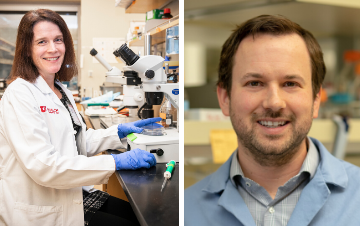 Kimberley J. Evason, MD, PhD, and Gregory S. Ducker, PhD
Kimberley J. Evason, MD, PhD, and Gregory S. Ducker, PhD
Huntsman Cancer Institute at the University of Utah
One of the unique features of liver cancer is the way in which it obtains and uses different forms of energy, especially fats. Drs. Evason and Ducker found that a certain type of fat (phosphatidylcholine lipids) is elevated in both zebrafish and human liver cancer cells. They are using zebrafish, which form tumors similar to the human disease and can be easily manipulated to study liver cancer. The goal of this project is to determine why phosphatidylcholine lipid levels are higher in liver cancer and how they might be targeted with drugs to prevent or cure this disease.
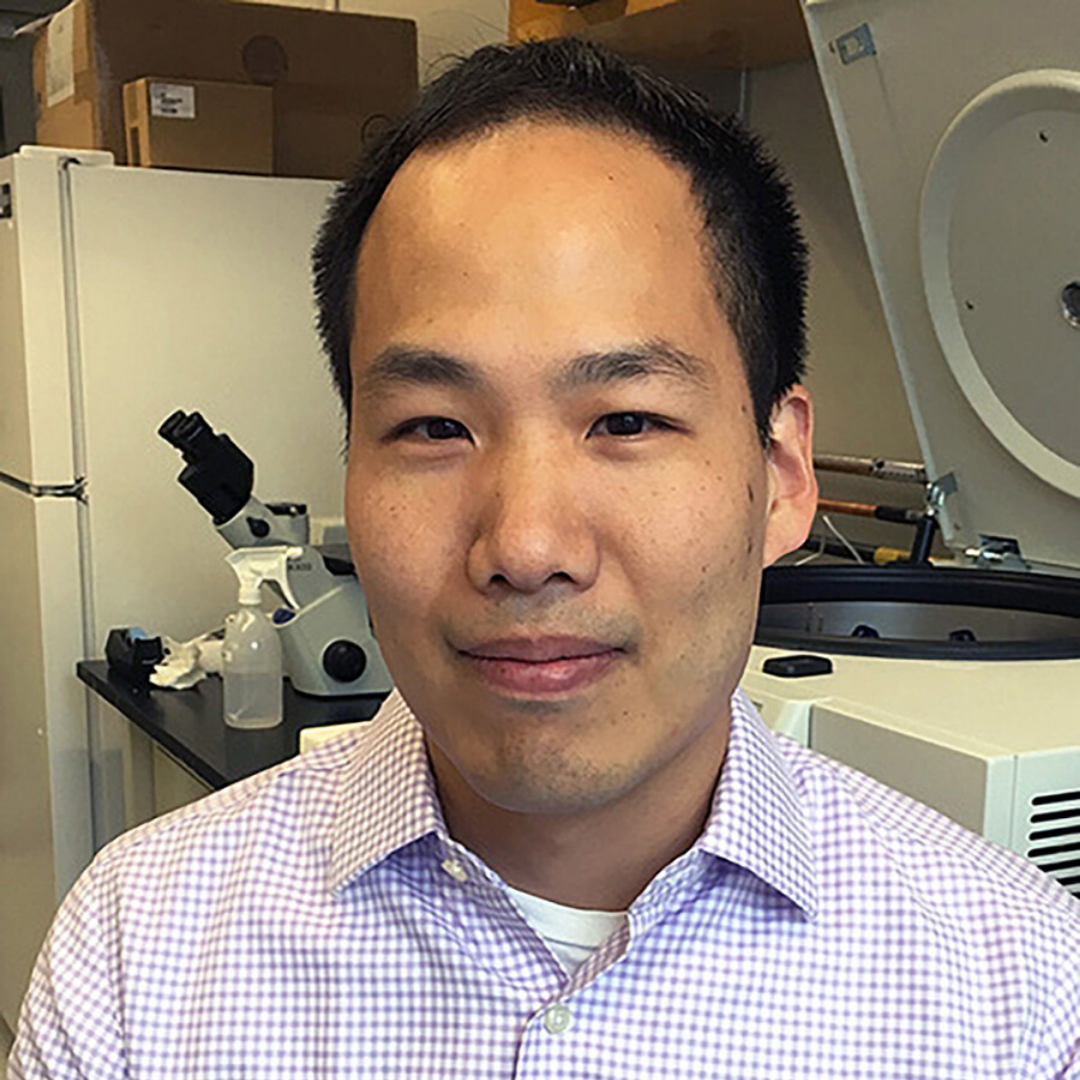 Brian B. Liau, PhD
Brian B. Liau, PhD
Harvard University
One form of enzyme regulation, called allostery, is critical for integration of different biochemical signals to modulate enzyme structure, activity and function. By combining chemical biology and genome-editing methods, Dr. Liau is pioneering approaches to explore allostery, specifically focusing on DNA methyltransferase enzymes. These enzymes are often disrupted in cancers, including acute myeloid leukemia (AML), but their regulation is not understood. Identifying allosteric mechanisms that regulate DNA methyltransferase function will shed light on the impact of cancer mutations on enzyme function and strategies to pharmacologically modulate their activity. The approaches developed will be broadly expanded to study other enzymes disrupted in cancer and leveraged with synthetic chemistry to enable therapeutics discovery.
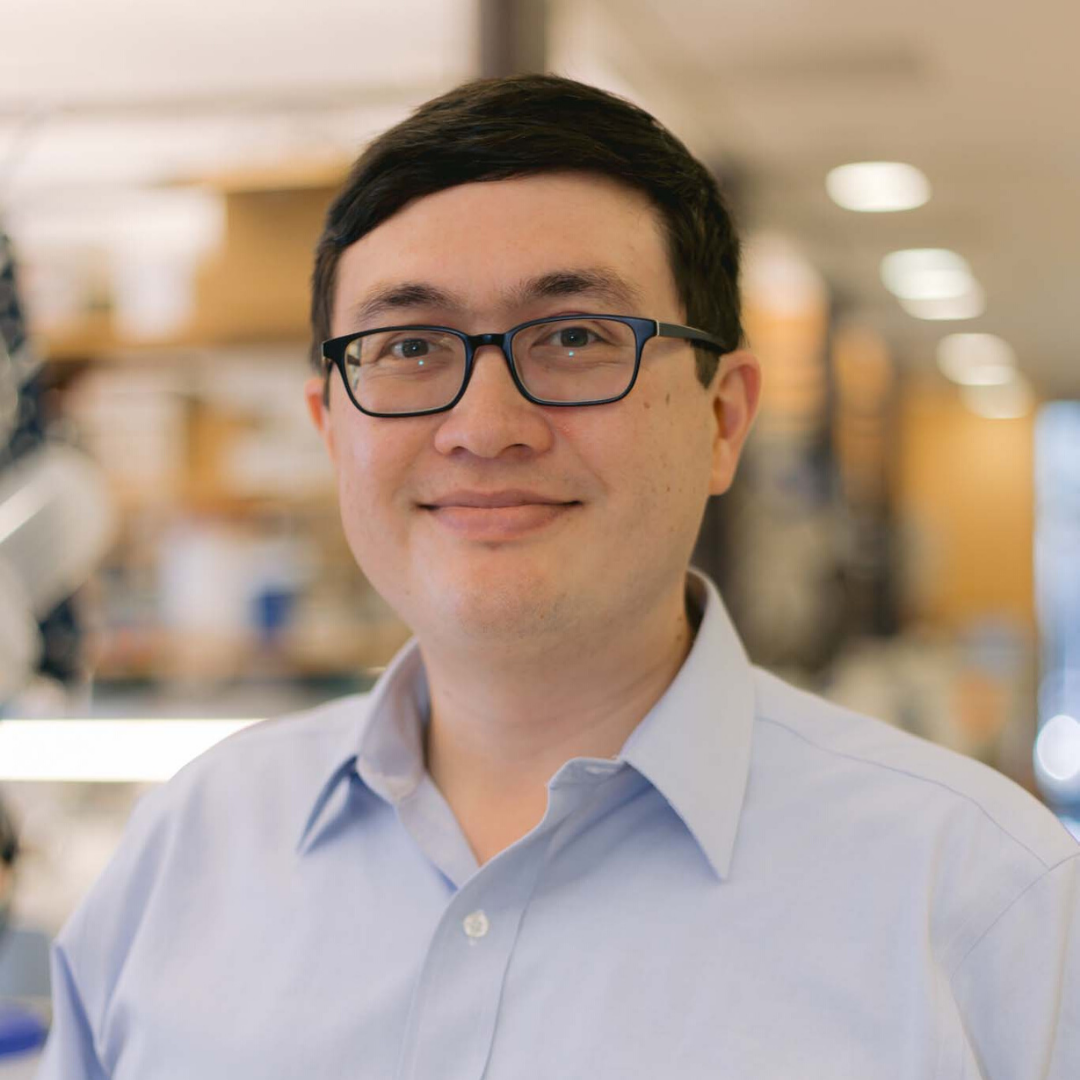 Michael E. Pacold, MD, PhD
Michael E. Pacold, MD, PhD
New York University Langone Health
Oxygen is a double-edged sword in pancreatic cancer biology. Pancreatic cancers require oxygen, but they are amongst the most hypoxic of cancers, with oxygen concentrations as low as 200-fold below atmospheric oxygen concentrations. Pancreatic cancers use oxygen to make molecules critical for their survival and proliferation, but they are also vulnerable to oxidative stress, which is essential for the effectiveness of cancer treatments such as radiation. Dr. Pacold has developed techniques to determine which oxygen-dependent reactions are prioritized by pancreatic cancers and enhanced by radiation treatment, with the goal of identifying new targets that could be used for treating pancreatic and other cancers that are treated with radiation.
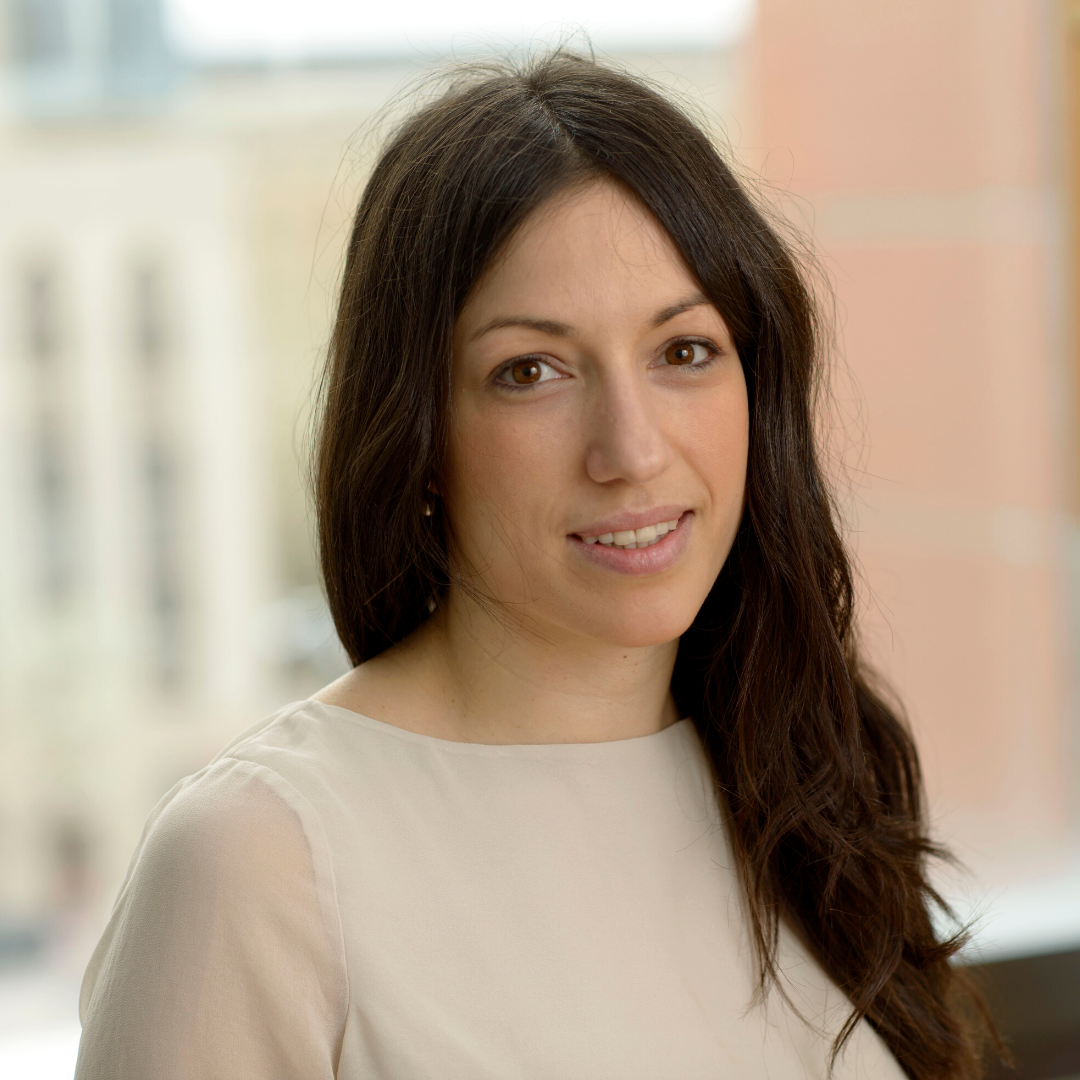 Elli Papaemmanuil, PhD
Elli Papaemmanuil, PhD
Memorial Sloan Kettering Cancer Center
Cancer survivors are at a higher risk of developing blood cancers than the general population due to the toxic effects of the treatments used to fight their cancer. Therapy-related blood cancers are often resistant to existing drugs and therefore extremely challenging to treat. Contrary to previous thought, recent studies show that the mutations causing these blood cancers can be identified in patients’ blood many years before they received therapy. Dr. Papaemmanuil has discovered that the existing mutations alone are not sufficient to cause therapy-related cancer but require the acquisition of additional mutations that affect large segments of the DNA or “allelic imbalances.” She will pursue further studies to screen patients and understand the mechanisms of therapy-related blood cancers. These findings will inform clinical strategies of early detection and targeted intervention to better treat this aggressive disease.
2020 Stage 2 Damon Runyon-Rachleff Innovators:
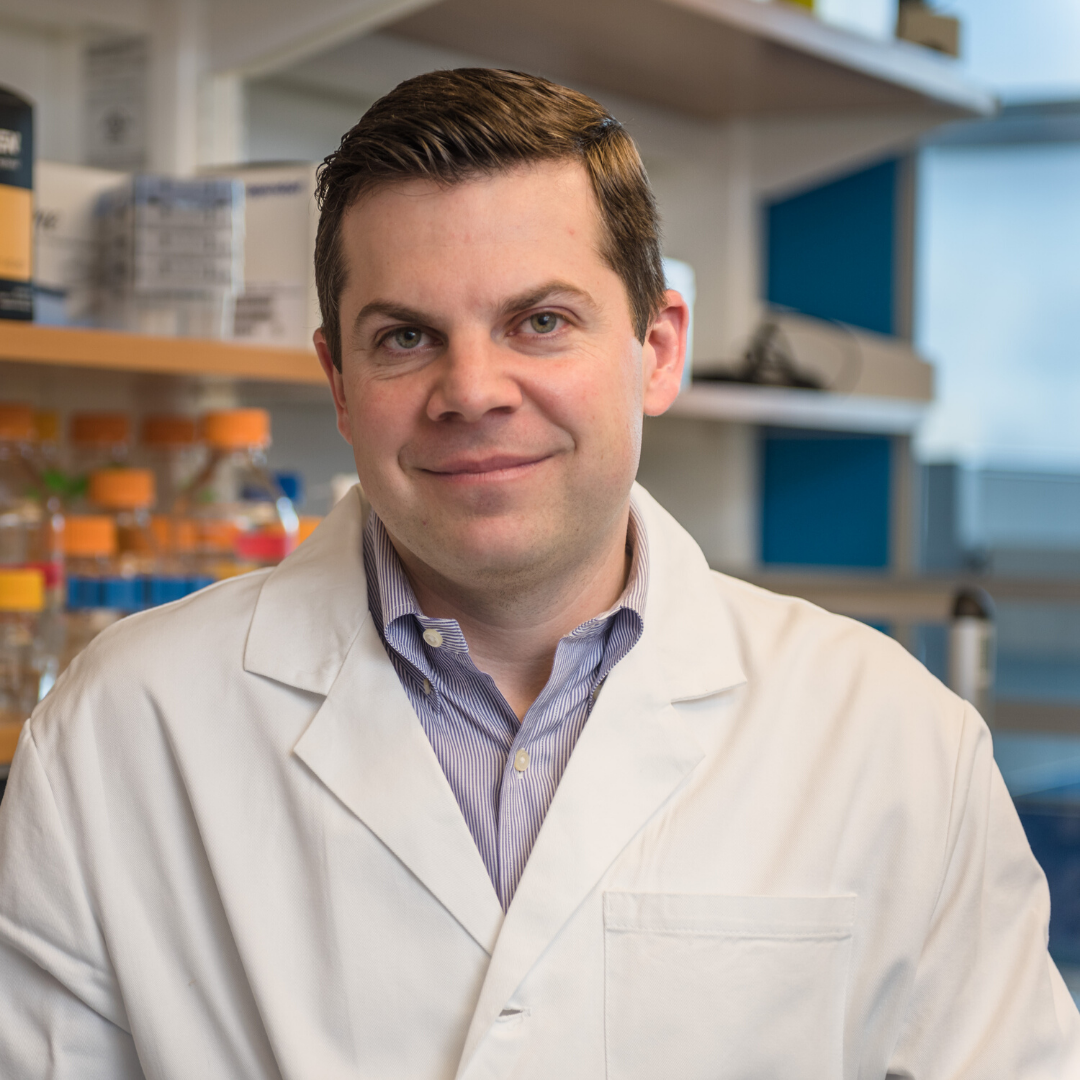 Eric S. Fischer, PhD
Eric S. Fischer, PhD
Dana-Farber Cancer Institute
Targeted cancer therapies that interfere with specific molecules involved in the growth, progression and spread of cancer have been successful in cancer treatment in recent years. However, many known cancer-driving proteins are recalcitrant to the development of traditional small molecule inhibitors. To address this problem in drug development, researchers are developing “degraders,” small molecules that direct cancer-causing proteins to the cellular waste disposal system – the ubiquitin proteasome system – to eliminate them from the cell. While the concept has shown incredible success in the case of lenalidomide (Revlimid) for treating multiple myeloma, our understanding of the underlying mechanism is insufficient to broadly apply degraders to cancer treatment. Dr. Fischer’s research will expand our molecular understanding of how degraders work and develop a novel class of small molecule degraders to target oncogenic gene products. His work will likely contribute to new approaches to treat many cancers.
 Arnold S. Han, MD, PhD
Arnold S. Han, MD, PhD
Columbia University
Cancer immunotherapy mobilizes the body’s own sophisticated defenses to target and kill cancer cells. Despite its enormous promise, immunotherapy is only effective in a subset of cancers in a small group of patients. Dr. Han is investigating the role of the immune system’s T cells in human colorectal cancer, which has limited treatment success with immunotherapy. He is using unique tools to improve our fundamental understanding of tumor immunity and to directly test a new therapeutic approach based on his hypothesis that our bodies produce T cells capable of specifically targeting a patient’s tumors. His proposed research explores a strategy to identify these T cells and use genetic engineering to enable them to realize their full potential. He anticipates his findings will be applicable to other types of cancers as well.
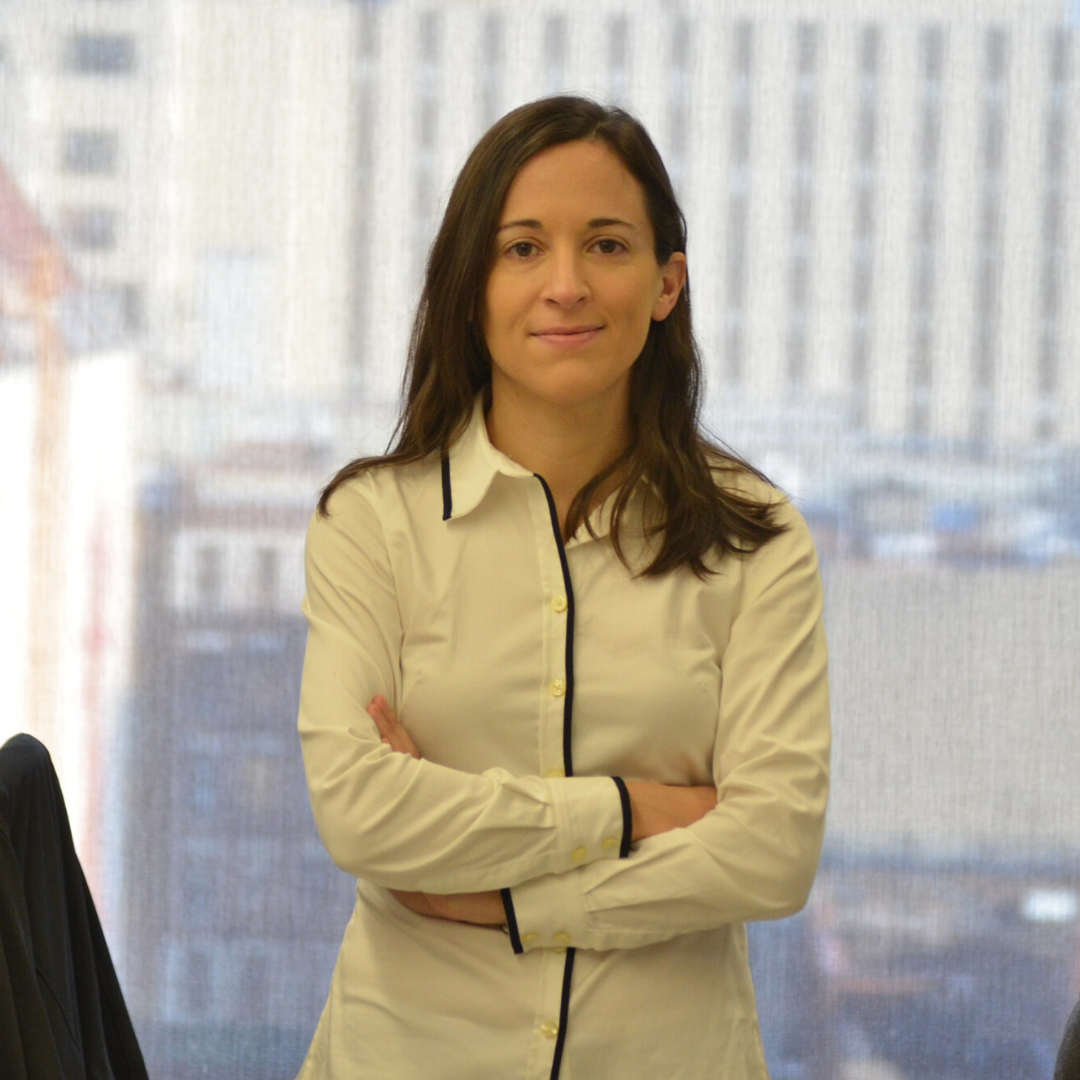 Amaia Lujambio, PhD
Amaia Lujambio, PhD
Icahn School of Medicine at Mount Sinai
Immunotherapy is revolutionizing the clinical management of a variety of cancers, including hepatocellular carcinoma (HCC), a type of liver cancer that shows little response to conventional therapeutic approaches. Recently, two immune checkpoint inhibitors, nivolumab (Opdivo) and pembrolizumab (Keytruda), have been approved as second line therapy after showing unprecedented complete responses in clinical trials. However, not all patients are sensitive to these anti-PD1 drugs, highlighting the urgent need to identify biomarkers for optimal patient selection and strategies to overcome resistance. Dr. Lujambio is using a novel mouse model of liver cancer and samples from HCC patients treated with checkpoint inhibitors to identify genes that are involved in intrinsic and acquired resistance to this therapy. These findings will be critical to define biomarkers that identify HCC patients who are most likely to benefit from this immunotherapy. Moreover, her findings may lead to the design of combination therapies that effectively treat more patients.
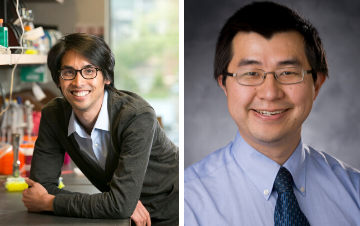 Lawrence A. David, PhD, and Anthony D. Sung, MD
Lawrence A. David, PhD, and Anthony D. Sung, MD
Duke University
The human gut is home to trillions of microorganisms, collectively called the microbiota, which affect health and disease. For example, in patients receiving hematopoietic stem cell transplantation as treatment for leukemias, lymphomas and other blood cancers, disruptions in the microbiota have been linked to disease relapse, infections and reduced survival. To address these treatment complications, Drs. David and Sung are developing ways to manipulate the microbiota through prebiotics, carbohydrates that a patient can ingest to stimulate the growth and maintenance of various beneficial bacteria. The challenge is that each patient has different microbiota and therefore may respond differently to the same prebiotic therapy. They are developing approaches for personalizing prebiotic treatments for hematopoietic stem cell transplant (HCT) patients based on their individual gut microbiota. After validating their prebiotic personalization with a mouse model, they will test the safety and feasibility of this treatment in a Phase 1 clinical trial with HCT patients.
DAMON RUNYON CANCER RESEARCH FOUNDATION
To accelerate breakthroughs, the Damon Runyon Cancer Research Foundation provides today’s best young scientists with funding to pursue innovative research. The Foundation has gained worldwide prominence in cancer research by identifying outstanding researchers and physician-scientists. Twelve scientists supported by the Foundation have received the Nobel Prize, and others are heads of cancer centers and leaders of renowned research programs. Each of its award programs is extremely competitive, with less than 10% of applications funded. Since its founding in 1946, the Foundation has invested over $375 million and funded more than 3,750 young scientists. Last year, we committed over $22 million in awards to brilliant young investigators.
100% of all donations to the Foundation are used to support scientific research. Administrative and fundraising costs are paid with revenue from the Damon Runyon Broadway Tickets Service and our endowment.
For more information visit damonrunyon.org
CONTACT
Meghan McCurdy
Director, Communications and Marketing
Damon Runyon Cancer Research Foundation
212.455.0504
